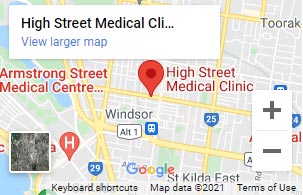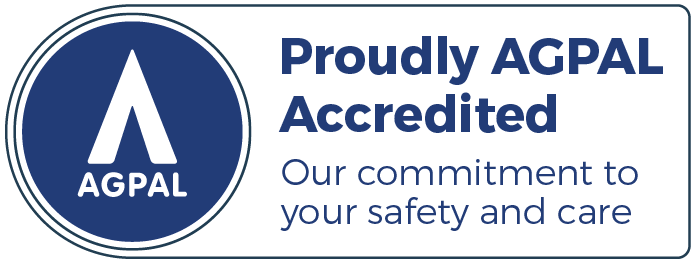Sadly, each year, around 1,800 Australian women are diagnosed with ovarian cancer. Internationally, diagnosis rates reach nearly a quarter of a million.
In fighting all forms of cancer, information can be a powerful weapon, especially when it comes to early diagnosis and symptoms recognition.
In this article, we’re going to discuss what ovarian cancer is, what the symptoms are, treatments and possible preventions.
What is ovarian cancer?
Ovarian cancer is a malignant tumour that begins in the one or both ovaries, the female reproductive organs that produce eggs.
Ovarian cancer is the fifth leading cause of cancer deaths among women, and one that, with the right prevention, education and early detection, can have its number reduced.
Ovarian Cancer Symptoms
Ovarian cancer symptoms can often go undetected until it has progressed to an advanced stage. As such, knowing the symptoms is an important part of women’s health.
Here are some signs and symptoms that women should be aware of:
- Abdominal bloating or swelling
- Pain in the pelvis or abdomen
- Difficulty eating or feeling full quickly
- Urinary symptoms, such as urgency or frequency
- Fatigue or weakness
Note that these ovarian cancer symptoms can be caused by many different conditions, and having them does not necessarily mean that a woman has ovarian cancer.
If these symptoms persist or you have concerns, get in touch with High Street Medical Clinic on (03) 9510 5500 or book an appointment online today.
Diagnosis of Ovarian Cancer
If a woman or her doctor suspects ovarian cancer, there are a range of tests to confirm the diagnosis. These tests may include:
Ovarian cancer ultrasound
An ovarian cancer ultrasound uses sound waves to create images displayed on a monitor. These tests are typically simple and straightforward for patients and can be a first port of call when ovarian cancer is suspected.
In fact, ovarian cancer ultrasounds are often the first test done if any problem with the ovaries is suspected.
Pelvic exam
Health professionals feel for any lumps or abnormalities in the ovaries or other reproductive organs.
Blood test
Clinical staff look for a substance called CA-125 in the blood as it’s often at increased levels in women with ovarian cancer. A blood test is not always reliable and CA-125 can be elevated for other reasons too.
Other imaging tests
In addition to an ovarian cancer ultrasound, a CT scan, or MRI might be used to get a better look at the ovaries and other organs.
Confirming ovarian cancer
If these tests suggest that a woman may have ovarian cancer, a biopsy will be necessary to confirm the diagnosis.
During a biopsy, a small sample of tissue is removed from the ovary and examined under a microscope.
Treatment of Ovarian Cancer
The treatment of ovarian cancer depends on the stage of the cancer, as well as other factors such as your age and overall health.
Treatment options can include:
Surgery
Surgery is often necessary to remove as much of the cancer as possible. This may involve removing one or both ovaries, as well as other reproductive organs or tissues if the cancer has spread.
Chemotherapy
Chemotherapy means using anti-cancer drugs to destroy and kill cancer cells. This treatment may be given before or after surgery, or in some cases, it may be the main treatment.
Radiation therapy
This involves using high-energy radiation to kill cancer cells. It is rarely used as a primary treatment for ovarian cancer but may be a good option for some patients.
If you’re affected or suspect you may be affected by ovarian cancer, get in touch with us for a consultation today.
Prevention of Ovarian Cancer
With many cancers, prevention is often the best form of defence and attack.
Although there is no surefire way to prevent ovarian cancer, there are some things that you can do to reduce risk.
Oral contraceptives
Women who take birth control pills for at least five years have a lower risk of ovarian cancer.
Pregnancy and breastfeeding
Women who have been pregnant and breastfed have a lower risk of ovarian cancer.
Family history
Women with a strong family history of ovarian or breast cancer may want to consider genetic testing and counselling.
Healthy lifestyle
Eating a healthy diet, exercising regularly, and of course, not smoking may help reduce the risk of ovarian cancer.
In summary
Ovarian cancer is a serious disease that can be difficult to detect, treat and cope with, but help is on your side.
For starters, many women find support through groups and communities such as Ovarian Cancer Australia, which offers understanding and care to those affected by ovarian cancer.
The ovarian cancer ribbon
Teal is the international colour of the ovarian cancer ribbon and something many choose to wear in support of affected women.

The ovarian cancer ribbon
In closing, it’s important to be aware of the signs and symptoms of ovarian cancer and regularly talk to health professionals if or when you have concerns.
Early detection and treatment are key to improving the prognosis for women with ovarian cancer.












